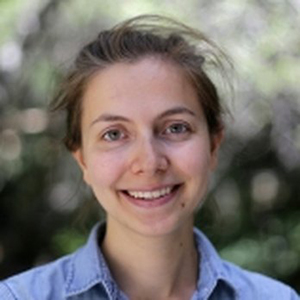Dr. Kirsten Paige

Bio
Kirsten Paige is an Associate Teaching Professor of Musicology at North Carolina State University. She was previously a Postdoctoral Fellow at Stanford University and received her Ph.D. in Music History from the University of California, Berkeley in 2018. Paige’s work asks how nineteenth-century musical cultures formed, sustained, and disrupted regimes of scientific knowledge and attendant constructions of human difference. Her most recent research examines the environmental and political lives of musical instruments in colonial contexts, with a particular focus on Southeast Asia.
Paige’s essays have appeared in journals including 19th-Century Music, Opera Quarterly, Cambridge Opera Journal, Sound Studies, and the Journal of the Royal Musical Association. Paige’s first book, Richard Wagner’s Political Ecology, a study of the deep history of the Wagnerian environmental imagination, will appear with the University of Chicago Press in 2026. Other current projects include co-editing a double issue of Keyboard Perspectives on global keyboard histories and co-editing the Cambridge Companion to Music & the Environment, forthcoming with Cambridge University Press in 2027. Her research has been supported by the American Musicological Society, Mellon Foundation, National Endowment for the Humanities, and Berkeley’s Doreen B. Townsend Center for the Humanities.
In 2025-26, Paige will be a Fellow at Harvard University’s research center, Dumbarton Oaks, where she will work on her next book, Keyboard Botany: Climate, Empire, and the Tropical Piano in Southeast Asia. This research is supported by a major grant from the American Council of Learned Societies.
Education
B.A. Music History and Theory University of Chicago 2011
M.Phil. Music University of Cambridge 2012
Ph.D. Music History University of California, Berkeley 2018
Area(s) of Expertise
Musicology
Publications
- Echo , SOUND STUDIES (2022)
- Listening to Climate Change , (2022)
- Listening to Daily Life in the Bosavi Rainforest , (2022)
- Introduction , NINETEENTH CENTURY MUSIC (2021)
- On the Politics of Performing Wagner Outdoors: Open-Air Opera, Gesamtkunstwerk and the Third Reich’s ‘Forest Opera’, 1933–45 , Journal of the Royal Musical Association (2021)
- Sonic ecosystems of loss: Voices of the Rainforest at twenty-five , Sound Studies (2021)
- Musical Vitalities: Ventures in a Biotic Aesthetics of Music, by Holly Watkins , Journal of the American Musicological Society (2020)
- Opera’s Inconvenient Truths in the Anthropocene Age: CO2 and Anthropocene , The Opera Quarterly (2020)
- “Art and Climate” and the Atmospheric Politics of Wagnerian Theater , The Opera Quarterly (2019)
- Wagnerian Climatic Fantasies: Sound, Space, Breath , European Romantic Review (2017)